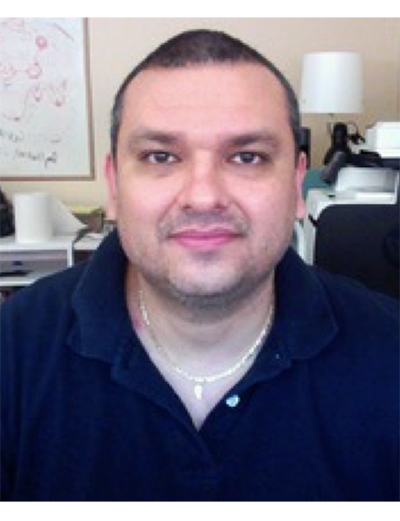
Leonard Harris, Ph.D.
Postdoctoral Fellow, Quaranta Lab & Lopez Lab
Research Description
Leonard’s research focuses on modeling and simulation of cellular dynamics and intracellular signaling pathways to understand the mechanisms underlying acquired resistance in cancer. He works closely with experimentalists in the lab to build computational models that provide insight and aid in interpreting experimental data. His work spans pharmacology, cancer biology, and biochemistry and he is particularly interested in uncovering non-genetic (biochemical) mechanisms that allow cancer cells to survive the initial stages of drug treatment. His working hypothesis is that cancer cells employ an evolutionary “bet hedging” strategy, whereby they phenotypically diversify in the absence of drug to increase the odds that a portion of cells will survive a future drug challenge. In the long term, these surviving cells may acquire drug-resistance mutations, resulting in tumor recurrence. Thus, if we can better understand the molecular networks controlling the short-term drug response we may be able to develop treatments that greatly reduce, or even eliminate, cancer cells before they have a chance to acquire resistance mutations, improving patient outcomes.
Publications:
1. Paudel BB, Harris LA, Hardeman KN, Abugable AA, Hayford CE, Tyson DR and Quaranta V: A non-quiescent “idling” population state in drug-treated, BRAF-mutated melanoma. Biophys J 114:1499-1511, 2018.
2. Jones ZW, Leander R, Quaranta V, Harris LA* and Tyson DR*: A drift-diffusion checkpoint model predicts a highly variable and growth-factor-sensitive portion of the cell cycle G1 phase. PLoS One 13:e0192087, 2018 (*equal authors).
3. Harris LA*, Nobile MS*, Pino JC*, Lubbock ALR, Besozzi D, Mauri G, Cazzaniga P and Lopez CF: GPU-powered model analysis with PySB/cupSODA. Bioinformatics 33: 3492-3494, 2017 (*equal authors).